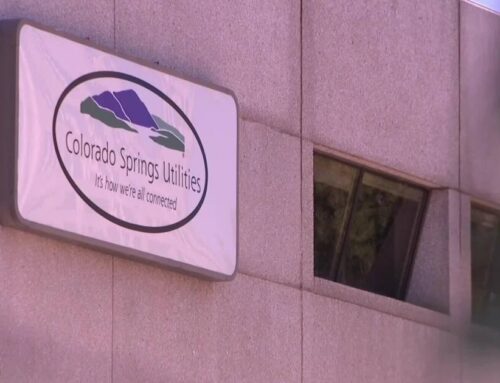House Lawmakers Introduce Cannabis Legalization Bill
August 31, 2025
A group of Democratic lawmakers on Friday reintroduced legislation to legalize marijuana at the federal level. If passed, the bill would remove cannabis from the nation’s list of controlled substances and establish regulations for commercial weed sales, Marijuana Moment reported.
Rep. Jerry Nadler of New York introduced the legislation, dubbed the Marijuana Opportunity, Reinvestment and Expungement (MORE) Act, along with dozens of his Democratic colleagues in the House. This is the fourth consecutive legislative session Nadler has introduced the measure to legalize cannabis.
“As more states continue to legalize marijuana and public support increases, federal laws must catch up and reverse failed policies criminalizing marijuana,” Nadler said in a statement about the bill. “It is long past time to decriminalize marijuana at the federal level, expunge marijuana convictions, and facilitate resentencing, while reinvesting in the communities most adversely impacted by the War on Drugs.”
If passed, the MORE Act would remove cannabis from the federal Controlled Substances Act (CSA), effectively legalizing marijuana at the federal level. Each state would then be free to regulate cannabis as it saw fit, including continuing to prohibit the plant and its use.
The measure also regulates commercial cannabis activity and levies a 5% federal excise tax on marijuana products, rising to 8% after five years. The legislation includes regulations to govern such products, including packaging and labeling requirements.
Dozens Of House Democrats Back Weed Legalization Bill
The Democratic congressional representatives who have signed on as co-sponsors of this year’s version of MORE Act include Reps. Dina Titus of Nevada, Ilhan Omar of Minnesota, Nydia Velázquez of New York, California’s Lou Correa and Ted Lieu, Eleanor Holmes Norton of the District of Columbia, Pramila Jayapal of Washington and Maine’s Chellie Pingree, among more than 30 others.
“It’s time to modernize our laws to reflect the reality of cannabis use in the United States, recognize the legitimate industry that has emerged, and fully embrace the medical benefits of the plant,” said Titus, a co-chair of the Congressional Cannabis Caucus. “The federal government must catch up to the states, and this bill provides a framework to end the failed War on Drugs while supporting communities and businesses nationwide.”
The bill also allows for the expungement of records of past federal marijuana-related crimes and prohibits the denial of federal benefits based on the possession or use of cannabis. Half of tax revenue would fund a Community Reinvestment Grant Program administered by the Justice Department, while 10% would be dedicated to substance misuse treatment programs. The remaining 40% of tax dollars would be directed to the Small Business Administration, which would be tasked with creating and implementing an equitable cannabis business license program.
Omar, another Congressional Cannabis Caucus co-chair, said she understands “how deeply the War on Drugs has devastated families and fueled racial disparities in arrests and incarceration without making us safer.”
“The MORE Act will decriminalize marijuana at the federal level, clear records, and reinvest in the communities most harmed by these failed policies,” she added. “In Minnesota we have already shown that legalization can deliver both fairness and economic opportunity. It is past time for the federal government to follow our lead and finally end the era of criminalization.”
Coalition Of Nonprofit Groups Back Weed Legalization Bid
The MORE Act is also backed by dozens of groups including cannabis policy reform advocacy nonprofits, labor organizations and civil rights groups.
“For decades, marijuana criminalization has disproportionately targeted people of color and low-income communities,” said Maritza Perez Medina, director of federal affairs at the Drug Policy Alliance. “This policy of marijuana criminalization has led to mass incarceration, family separation, deportation, and lost economic opportunities.”
“In addition to clearly and unambiguously descheduling marijuana, the MORE Act would address the vast social and economic harms caused by marijuana criminalization,” she said. “Anything short of descheduling will continue to perpetuate the harms of federal marijuana criminalization, and we urge members of Congress who oppose these harms to cosponsor MORE.”
Nadler has introduced the legislation three times previously. The House of Representatives approved the MORE Act twice under Democratic leadership, but the bill failed to gain approval from the Senate. Under Republican leadership, the measure has not come up for a vote of the full House. This year’s measure is essentially the same as previous versions, with minor technical changes.
“The House made history when it passed the MORE Act in the 116th and 117th Congresses,” Kat Murti, executive director of Students for Sensible Drug Policy (SSDP), said. “With the House once again leading the way, the Senate must act now to finally deliver on the promise of justice and opportunity nationwide.”
“Young people deserve a future free from the lifelong harms of prohibition, and we urge Congress to act swiftly to pass this legislation and begin repairing the injustices caused by decades of criminalization,” she continued.
Trump Administration Mulls Weed Rescheduling Plan
The introduction of this year’s version of the MORE Act comes as the Trump administration considers a more modest proposal to reform federal marijuana policy that was initiated under former President Joseph Biden. Under that plan, cannabis would be removed from Schedule I of the CSA and placed under Schedule III. A bill a Florida GOP representative introduced earlier this month would accomplish the same goal. A separate bipartisan bill introduced in April would direct the U.S. attorney general to develop a plan for federal marijuana policy reform.
“For decades, marijuana criminalization has disproportionately targeted people of color and low-income communities,” commented Maritza Perez Medina, director of federal affairs at the Drug Policy Alliance. “This policy of marijuana criminalization has led to mass incarceration, family separation, deportation, and lost economic opportunities.”
“In addition to clearly and unambiguously descheduling marijuana, the MORE Act would address the vast social and economic harms caused by marijuana criminalization,” she added. “Anything short of descheduling will continue to perpetuate the harms of federal marijuana criminalization, and we urge members of Congress who oppose these harms to cosponsor MORE.”
Search
RECENT PRESS RELEASES
Related Post



